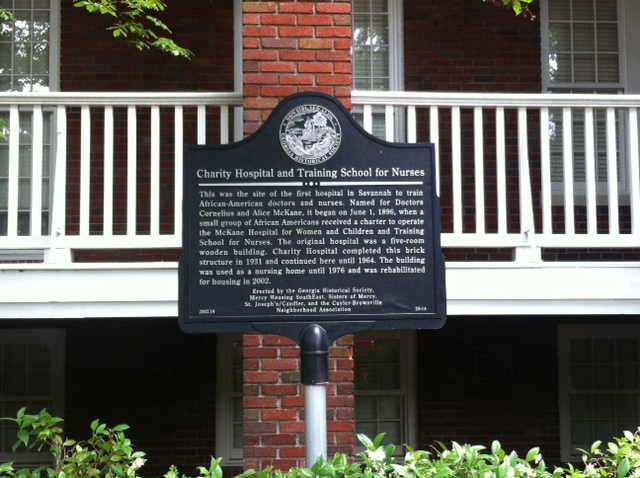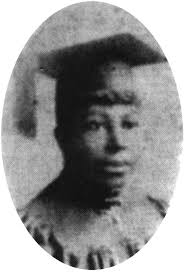Inspired by the theme presented by the National Women’s History Alliance, for National Women’s History Month (NWHM) 2019, “Visionary Women: Champions of Peace and Nonviolence,” and in partnership with the League of Women Voters of Coastal Georgia, this month’s #MarkerMondays explore the role of Georgia women “who have led efforts to end war, violence, and injustice and pioneered the use of nonviolence to change society.”

This week’s #MarkerMonday highlights Dr. Alice Woodby McKane’s achievements in advancing healthcare and professional development for African Americans. When Dr. Alice Woodby moved to Augusta in 1892 to work as a resident physician and nursing instructor at Haines Normal and Industrial Institute, she was the only female African-American physician in the state of Georgia. After marrying Dr. Cornelius McKane, Alice Woodby McKane, with assistance from her husband, established the McKane Training School for Nurses in 1893. Located in Savannah, the school provided medical training to African Americans to promote professional healthcare to the under-served black community. At the time, most African-American healthcare was homeopathic, and it was uncommon for medical schools to be both taught and managed by African Americans. When the McKanes moved to Monrovia, Liberia in 1895, the school continued under the stewardship of William Blackman.

After returning to Savannah in February 1896, Alice began to practice as a physician and gynecologist on West Broad Street, where she specialized in women’s health. Still aware of the inadequate healthcare resources for black Savannahians, Alice and a small group of African Americans petitioned the Chatham County Superior Court and obtained a charter to operate what became the McKane Hospital for Women and Children and Training School for Nurses. After the McKanes withdrew from the hospital in 1901, the governing body changed the name to Charity Hospital. Alice and Cornelius McKane, meanwhile, continued to operate a thriving private practice in Savannah.
The McKanes relocated to Boston in 1909 where Cornelius died a few years later. Alice, however, continued to serve her community as a nursing instructor at Plymouth Hospital. She was also a member of the National Association for the Advancement of Colored People (NAACP), a Republican committee woman, and an advocate for women’s suffrage. After a life of pioneering service to African-American healthcare, Alice Woodby McKane died in 1948 at the age of 83.
Explore the links below to learn more about Alice Woodby McKane and Charity Hospital.
Marker Monday “Savannah’s African-American Medical Pioneers”
Georgia Women of Achievement “Alice Woodby McKane”
A Legacy of Leadership “Dr. Alice Woodby McKane and Pioneering Healthcare in Georgia”
Related Historical Markers:
Savannah’s African-American Medical Pioneers
Haines Normal and Industrial Institute
GHS houses several collections related to Alice Woodby McKane and Charity Hospital.
Hitch family papers, 1900-1930.
Georgia Historical Society collection of postcards, 1900s.
The Georgia Historical Quarterly published an article related to Alice Woodby McKane and Charity Hospital which can be accessed on JSTOR. If your library does not have access to JSTOR, you can go to www.jstor.org and create a free MyJSTOR Account.
Black Medical Pioneers in Savannah, 1892-1909: Cornelius McKane and Alice Woodby McKane
